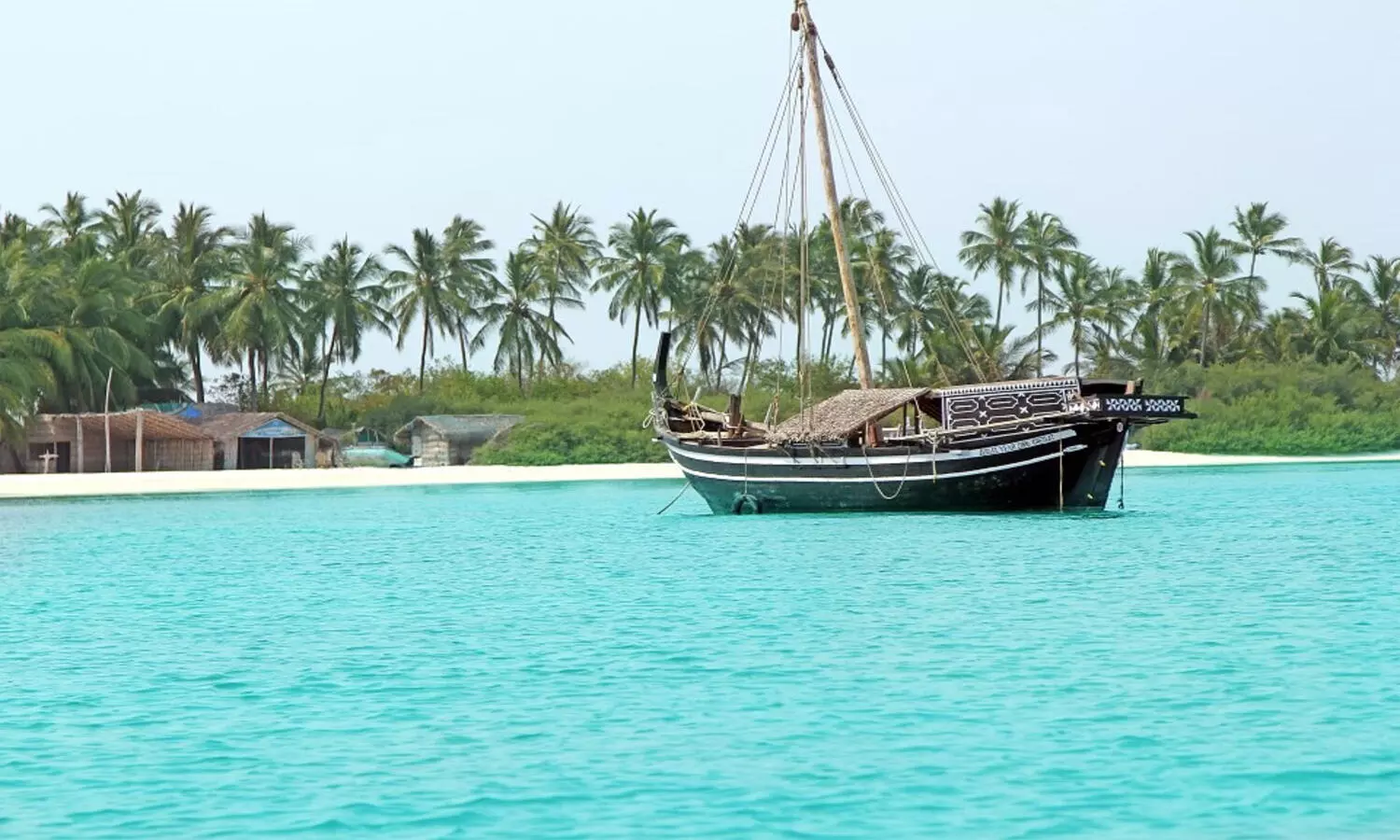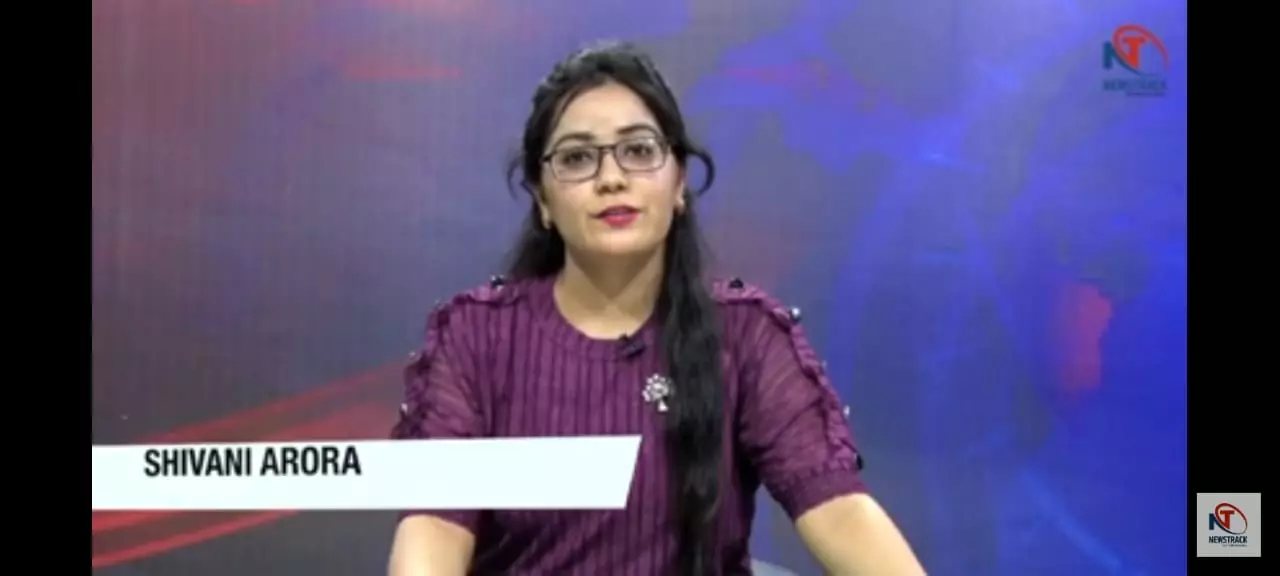TRENDING TAGS :
What's happening in Lakshadweep and why it matters? Here's all you need to know
Months of strife, misguided efforts, and the use of official muscle for policies of exclusion resulted in the present crisis.
Lakshadweep (Social Media)
Lakshadweep has the lowest population ranking in India, with just about 65,000 people inhabiting 10 of its 36 islands. Its decadal population growth rate of 6.23 percent is far below the same at the national level at 17.70 percent. In such a place, how does one make sense of bringing a new law, called the Draft Lakshadweep Panchayat Regulation 2021, that will ban parents with more than two children contesting local body elections?
An all-party meeting is scheduled today in Lakshadweep against the administrator's reforms even as the collector of the islands has called a press conference in Kochi later in the day to explain the position of the administration in the stand-off.
Lakshadweep:
The Andrott Island, the largest in the archipelago, has a maximum width of slightly more than a kilometre. The surface area of the entire 36 islands that make up the archipelago is only 32 square kilometres. Vehicles are only a bare minimum. How does one make sense of allowing rampant construction and expansion of highways there, by forming a new regulatory body called the Lakshadweep Development Authority (LDA), which will have to cut off hundreds of trees and bulldoze several houses in thickly-populated clusters?
These, and many more, are some of the maverick acts proposed by its new administrator Praful Khoda Patel that has made Lakshadweep, celebrated as an oasis of peace and tranquillity, into a disquiet land simmering in protests.
Among those who joined the backlash against Patel, are celebrities like Malayalam movie actor Prtihiviraj Sukumaran to nearly every parliamentarian from Kerala. News channels in Kerala are hosting prime-time debates on the topic. On Twitter Spaces, hundreds of islanders and mainlanders, are having hours-long conversations not just about the administrator's acts, but about the complicated identity of being an islander.
How It Started
To be sure, months of strife, misguided efforts, and the use of official muscle for policies of exclusion, resulted in this crisis. In it, this has become a flashpoint in the history of Lakshadweep, bringing out its muddled sense of itself.
Trouble for the union territory started with the replacement of a civil servant with seasoned politician Patel, former Gujarat home minister under the then Chief Minister Narendra Modi, as its administrator on December 5, 2020.
Typically, the administrator jockeys for power without spoiling a working relationship with the elected leaders. Patel, though, has been an odd one. In his five months, his critics have raised at least three main complaints to show his authoritarian approach.
The creation of the LDA is one. It empowers the administration to take over any land, without consultation with the stakeholders. For islanders, this is an attempt for a corporate land grab.
Second, is Patel's Anti-Social Activities Regulation Bill 2021, which is something of a Goondas Act, using which the State can detain anyone without disclosing it to the public for up to one year. This reeks of the usual tactics authoritarian laws use to brand as criminals and punish those who democratically protest.
"In short, he is threatening islanders, who live isolated from the mainland, using the stamp of authority. Islanders cannot run anywhere, they should not be asked to be subjugated to corporate interests in this manner," said Elamaram Kareem, Rajya Sabha MP from Kerala, to this author. Kareem also wrote a letter to President Ram Nath Kovind on the topic on May 24.
The third is the Lakshadweep Animal Preservation and Regulation 2021, which is similar to anti-cow slaughtering rules implemented in BJP-ruled states. It effectively prohibits slaughtering cows, by mandating a license for killing animals, which most likely will not be given for cows. The islanders have a lifestyle of using cows for agriculture, breeding or giving milk, and for meat consumption. The new law subverts it.
The set of changes have made the islanders sit up and assert their identity. Being almost entirely Muslims, the islanders abhor alcohol. So there exists a self-imposed prohibition, except on one island popular with the tourists, Bangaram.
Now Patel has announced making alcohol available in three more islands. Combined with the cow-slaughtering ban, it has raised a debate that is bound to split the island and elsewhere over religiosity.
Patel has also abolished the animal husbandry department and fired temporary staffers under it, according to the natives who spoke to this author. Some large dairy farms were ordered closure, their temporary workers were dismissed, and their animals were sold. Meanwhile, Gujarat-based Amul has been allowed to sell milk. This has added to the narrative that Patel is preferring outsiders, out of political or regional biases.
According to islanders who shared their stories on Twitter Spaces on May 24 and 25, Patel is also getting into the way of life and livelihoods. The police under him are demolishing fishing harbours, labelling them as unauthorised settlements. The administration also fired some 300 casual labourers in various official departments in the last five months, and shut down some 38 anganwadis, Kareem said to this author.
Kareem said that the MPs are planning to take their protest to the next stage by demanding that the Centre allow a joint delegation to visit the region and assess the situation. "If that does not happen, we will go there anyway," Kareem said.
Stay tuned with the newstrack to get fastest updates. Click @englishnewstrack to follow us on Facebook and @newstrackmedia to follow on Twitter.



